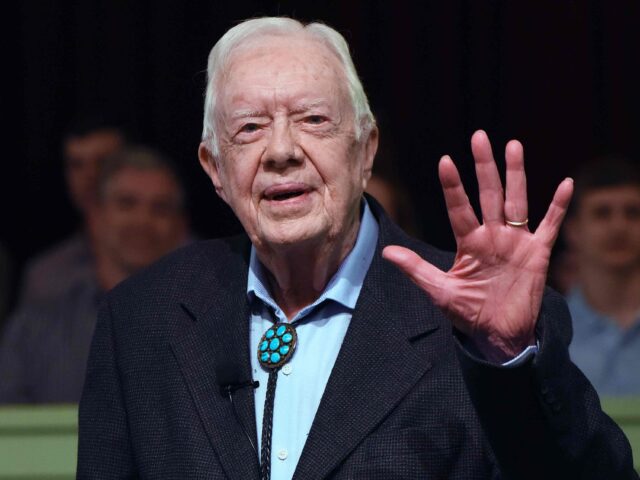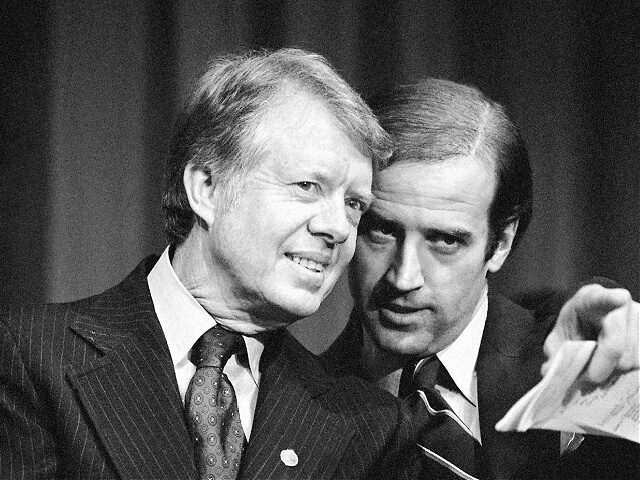Former President James Earl “Jimmy” Carter Jr. has passed away at the age of 100. He served only one term from 1977 to 1981 and was defeated by Ronald Reagan, yet remained active in politics and diplomatic life.
The 39th president lived longer than any other president in U.S. history. His death was announced on Sunday by his son, James E. “Chip” Carter III.
Carter was born in Plains, Georgia, and attended the United States Naval Academy, serving as an officer on nuclear submarines. He later returned home to run the family peanut farm before entering political life.
He rose through the ranks of the Democratic Party at a time when the South was undergoing profound changes with the end of the racial segregation system known as Jim Crow. He was elected governor of Georgia in 1970.
Carter was considered a long shot for the Democratic presidential nomination in 1976. But his evangelical faith and humble origins provided a wholesome antidote to the cloak-and-dagger politics of the Watergate era.
The Carter presidency was the first Democratic presidency since Lyndon Johnson inaugurated the Great Society in 1968. It represented the beginning of a decline in liberalism, both in domestic and foreign policy.
Carter could not manage the persistent problem of inflation, which hounded the U.S. economy throughout his term. Although he deregulated key industries, the full impact of these reforms would not be felt until later.
In foreign policy, Carter brokered the Camp David Accords in 1978 between Israel and Egypt, for which he later received the Nobel Peace Prize. He boycotted the 1980 Olympics in Moscow over the invasion of Afghanistan.
But he stumbled badly in the Iran hostage crisis of 1979-80. Carter’s perceived weakness in the face of Iranian terrorism compounded doubts about his meek approach to foreign policy, which stressed diplomacy, to a fault.
Carter was the first president to embrace an outlook that focused on America’s flaws. He installed solar panels on the White House, and tried to set an example of frugality, donning a sweater instead of turning up the heat.
His approach was typified by what became known as the “malaise” speech in 1979, in which he encouraged the nation to consume less. His dour demeanor and his zeal for continued sacrifices caused voters to turn away.
Reagan defeated Carter in 1980 by hammering the incumbent Democrat on the state of the economy, by promoting a foreign policy of “peace through strength,” and by offering a more optimistic outlook on America.
Carter accepted defeat but remained active in public life — at times in controversial ways. In 1994, he inserted himself into a tense standoff between the U.S. and North Korea, foiling efforts to isolate the Kim regime.

Former U.S. President Jimmy Carter speaks to the congregation at Maranatha Baptist Church before teaching Sunday school in his hometown of Plains, Georgia on April 28, 2019. Carter, 94, has taught Sunday school at the church on a regular basis since leaving the White House in 1981, drawing hundreds of visitors who arrive hours before the 10:00 am lesson in order to get a seat and have a photograph taken with the former President and former First Lady Rosalynn Carter. (Photo by Paul Hennessy/NurPhoto via Getty Images)
In 2006, Carter caused outrage by comparing Israel to apartheid South Africa in a book that, critics said, appeared to justify terror. Carter refused to debate then-Harvard Law professor Alan Dershowitz over the book.
Carter also lent weight to false “Russia collusion” conspiracy theories, claiming: “Trump didn’t actually win the election in 2016. He lost the election and he was put into office because the Russians interfered on his behalf.”
The 39th president was regarded more fondly for his charitable work, including his efforts on behalf of Habitat for Humanity and with his own Carter Center. He also continued to teach Sunday School at a local church.
Carter survived a bout with skin cancer, which in 2015 had spread to his liver and brain. He had been in ill health in recent days, and his family announced on Feb. 18 that he had elected to receive hospice care at home.
He endured more than four decades of being described as a failed president. However, many of his ideas were revived under President Joe Biden, whose policies today arguably mirror those of the Carter administration.
Carter was preceded in death last year by his wife, former First Lady Rosalynn Carter. He is mourned by his extended family, including his son and his grandson, former Georgia State Senator Jason Carter.
Joel B. Pollak is Senior Editor-at-Large at Breitbart News and the host of Breitbart News Sunday on Sirius XM Patriot on Sunday evenings from 7 p.m. to 10 p.m. ET (4 p.m. to 7 p.m. PT). He is the author of the new biography, Rhoda: ‘Comrade Kadalie, You Are Out of Order’. He is also the author of the recent e-book, Neither Free nor Fair: The 2020 U.S. Presidential Election. He is a winner of the 2018 Robert Novak Journalism Alumni Fellowship. Follow him on Twitter at @joelpollak.

COMMENTS
Please let us know if you're having issues with commenting.